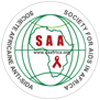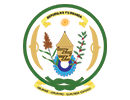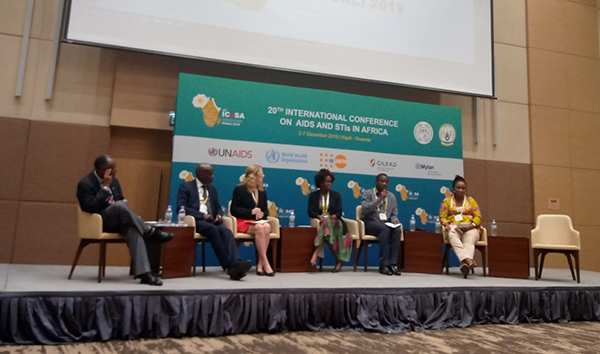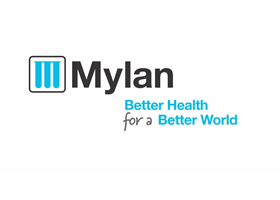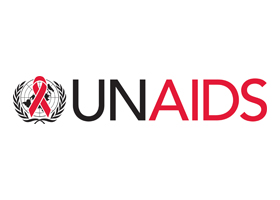Room: MH2
Reporter: Clementine Uwimana and Joselyne Hategekimana
Prof Oche Agbaji chaired the session he gave a brief talk titled ‘Our Best Thinking Got Us Here: The Problems that we face can't be solved by the same level of thinking that created it’. He noted that mental health disorders are common among people living with HIV. Significant success and progress have been made with antiretroviral scale up and achieving the 90-90-90 UNAIDS targets. Mental health disorders like depression, anxiety disorders, post-traumatic stress disorder and bi-polar disorders are diagnosed in persons living with HIV. There are huge barriers to integration of HIV and mental health across Africa. This include few mental health practitioners in Africa, poor integration of mental health into HIV services. To be able to identify and manage the mental health needs of people living with HIV, mental health and HIV response integration needs to be prioritized. This is currently not. Governments should do more to integrate mental health and HIV services and more studies on HIV and mental health integration is needed to learn how to do this.
Karen Webb gave a presentation titled Is It OK to not be OK in HIV care: mental health resources and screening in HIV care environments in 24 Districts of Zimbabwe. She stated that Zimbabwe has an adult HIV prevalence of 14.1% and people living with HIV are more than twice more likely to experience a mental disorder than those without HIV. Yet mental health nurses do not have the competency to provide HIV care. As a next step, it is important to specify roles of health care providers to screen, refer and treat persons who have mental health for HIV infection.
Gbeasor-Komlanvi Fifonsi Adjidossi discussed the prevalence and factors associated with psychological distress among Key population in Togo in 2017. The studies was conducted in eight cities in Togo. The study determined the prevalence of psychological distress and associated factors among MSM, female sex workers and drug users in Togo in 2017. He noted that mental health disorders is a growing public health challenge worldwide and has been identified as key contributors to HIV epidemic among key populations. His sample was 2044 key populations. He found that MSM and FSW were less likely to have psychological stress than drug users.
Michael Udedi presented his study on Impact of the Integration of a Depression Screening and Treatment program into Routine HIV care on HIV and mental health outcomes. He highlighted the reasons why depression management needs to be integrated into HIV care. Between 1 in 3 and 1in 6 people living with HIV in Africa have mild and severe depression respectively. His study also highlights that significant number of newly diagnosed clients with HIV infection had at least mild to moderate depression. Depression lead to loss of interest, poor motivation and low self _efficiency. His study assessed the feasibility of integrating mental health screening and management into routine care. Implementation of science studies needed to test the best ways to translate evidence based depression treatment protocols into practice.
Dr. Yinka Falola Anaoemuah made a presentation titled integration of mental health into HIV/AIDS community care and support guidelines in Nigeria. She defined mental health as a state of wellbeing in which every individual realizes his or her own potential, and can positively cope with the normal stresses of life. She suggested that mental health services should be delivered by trained staff. Training should be conducted using the WHO mhGAP.IG guidelines. Routine diagnosis, basic and ongoing supportive counseling and psychosocial support for people living with HIV and people affected by HIV can help reduce the burden of the disease on PLHIV.


